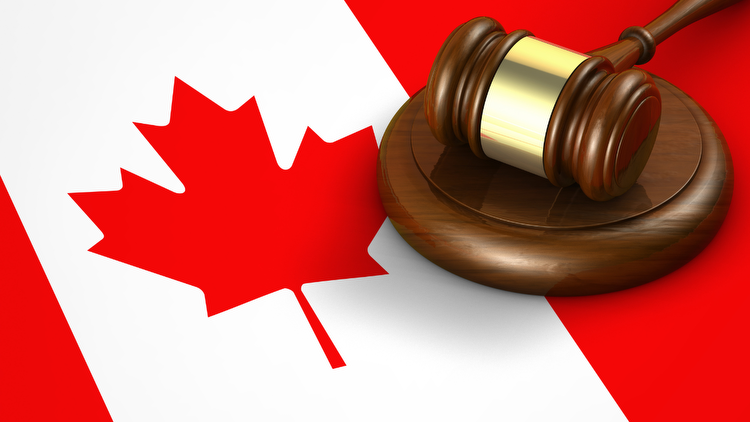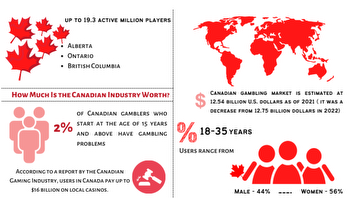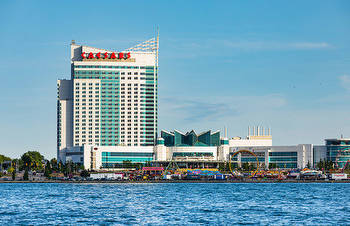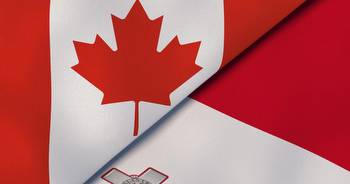Canadian Gambling Laws and Regulations: Explore The Legal Landscape Of Gambling In Canada

Gambling has always been a part of Canada’s history, starting with small lotteries for community projects and now with big casinos in cities. But understanding the laws about gambling in Canada can be challenging. This is because the rules differ for the whole country and each province.
The Criminal Code, the primary law for the entire country, says that gambling is usually not allowed. But a special rule lets provincial governments handle gambling in their own areas. It means each province has set up its group, often called a Lottery Corporation, to manage and control gambling activities. These groups are in charge of everything from casinos to sports betting, so each province has different gambling rules.
Online gambling has added complexity to the legal framework. While the Criminal Code prohibits the operation of online casinos without proper licensing, offshore operators have continued to provide services to Canadian players.
Current Landscape
Canada’s federal Criminal Code generally prohibits all forms of gaming. However, section 207 of the Code excludes provincial governments permitted to conduct and manage gaming within their province.
There are only a few restrictions on their right to do so: for example, horse racing and betting on horse racing are addressed separately in the Code, and the provinces are prohibited from entering that arena. The other major restriction was that no one, not even a provincial government, could take bets on single games and were thus restricted to offering parlay betting. That restriction was finally lifted in 2021.
In response to being granted the right to conduct and manage gaming, most provinces established separate government entities, the sole function of which was the conduct and management of gaming in that province.
The Code provides that the only other entities permitted to provide gaming in Canada are charitable organizations licensed by the applicable provincial government and small operations such as state fairs.
The express mention of licensing in those few cases and the complete lack of its use in any other gaming context in the Code has generally been read as a prohibition against provincial governments licensing private companies to run gaming operations in their respective provinces.
The “Grey” Market
Before the internet, gaming operations were illegal bookies or underground poker operations, clearly providing their services within the province. The situation became far more opaque once it was possible to play casino games and poker and place bets on football games on one’s personal computer.
The question then arose about whether an offshore operator is providing gaming in Canada if it has no activity in, or connection with, the country other than the location of some of its players.
The Code states in section 6(2) that “no person shall be convicted… of an offense committed outside of Canada.” This provision implies that the gaming sections of the Code lack extra-jurisdictional force. As a result, offshore operators have argued that they can credibly take the position that the gaming service they offer Canadians are not being provided in Canada, given their lack of nexus with the country.
The presence of offshore operators in the Canadian market has created a grey area, and their sophisticated platforms and games have posed a challenge to the success of the online gaming offerings by provincial Lottery Corporations. Efforts have been made by the latter to address the perceived illegal activities of offshore operators. Still, the lack of a clear legal framework and jurisdictional challenges have hindered effective enforcement.
Ontario’s Open Online Gaming Market
Ontario took a significant step by establishing open and competitive Ontario Online Casinos to balance competitiveness and consumer protection. In its 2019 Budget, the government announced the intention to create such a market, establishing a dedicated subsidiary, iGaming Ontario (IGO), under the Alcohol and Gaming Commission of Ontario (AGCO) to manage iGaming operations.
The AGCO regulates the gaming industry in Ontario using a standards-based approach, setting broad principles and goals for the industry and expecting companies to meet these standards.
After releasing versions of its online gaming standards for comment, the AGCO began accepting applications for registration from potential operators, suppliers, independent testing laboratories (ITLs), and independent integrity monitors. The market officially opened on April 4, 2022, with licensed operators launching their regulated sites.
Ontario’s iGaming structure requires operators, gaming-related service suppliers (GRSs), ITLs, and independent integrity monitors to be registered with the AGCO. Operators do not need to be Canadian entities, and there is no cap on the number of licenses to be granted.
IGO acts as the legal provider of gaming services, while operators act as agents, and operators must sign an Operating Agreement with IGO to regulate their responsibilities. The market has introduced measures to ensure consumer protection, responsible gambling, and fair play while keeping the industry competitive and open to licensed operators.
Other Provinces
Apart from Ontario, other provinces in Canada like Alberta have not shown an apparent inclination to follow its lead in establishing an open online gaming market. Each province has the authority to manage its gaming activities, and its approaches to gambling laws and regulations vary.
No other provinces have indicated their intent to move towards a similar model as Ontario’s. However, the success of Ontario’s open online gaming market might pique the interest of other provincial governments in exploring regulated online gambling opportunities. The revenue generated by licensed operators and the number of operators participating in the Ontario market could be a compelling example for other provinces to consider.
While some provinces have established online gaming platforms, they often follow different models, such as offering lottery-style games, sports betting, or casino games. The landscape of online gambling in each province can differ significantly based on the approach taken by the respective provincial governments.
With the gambling industry continuing to evolve, how other provinces will approach their gambling laws and regulations remains to be seen. The success and experiences of Ontario’s open online gaming market may influence the decisions of other provinces in the future. Until then, each province will continue to exercise its authority in managing gaming activities within its jurisdiction, and the regulatory landscape may vary from one province to another.






































